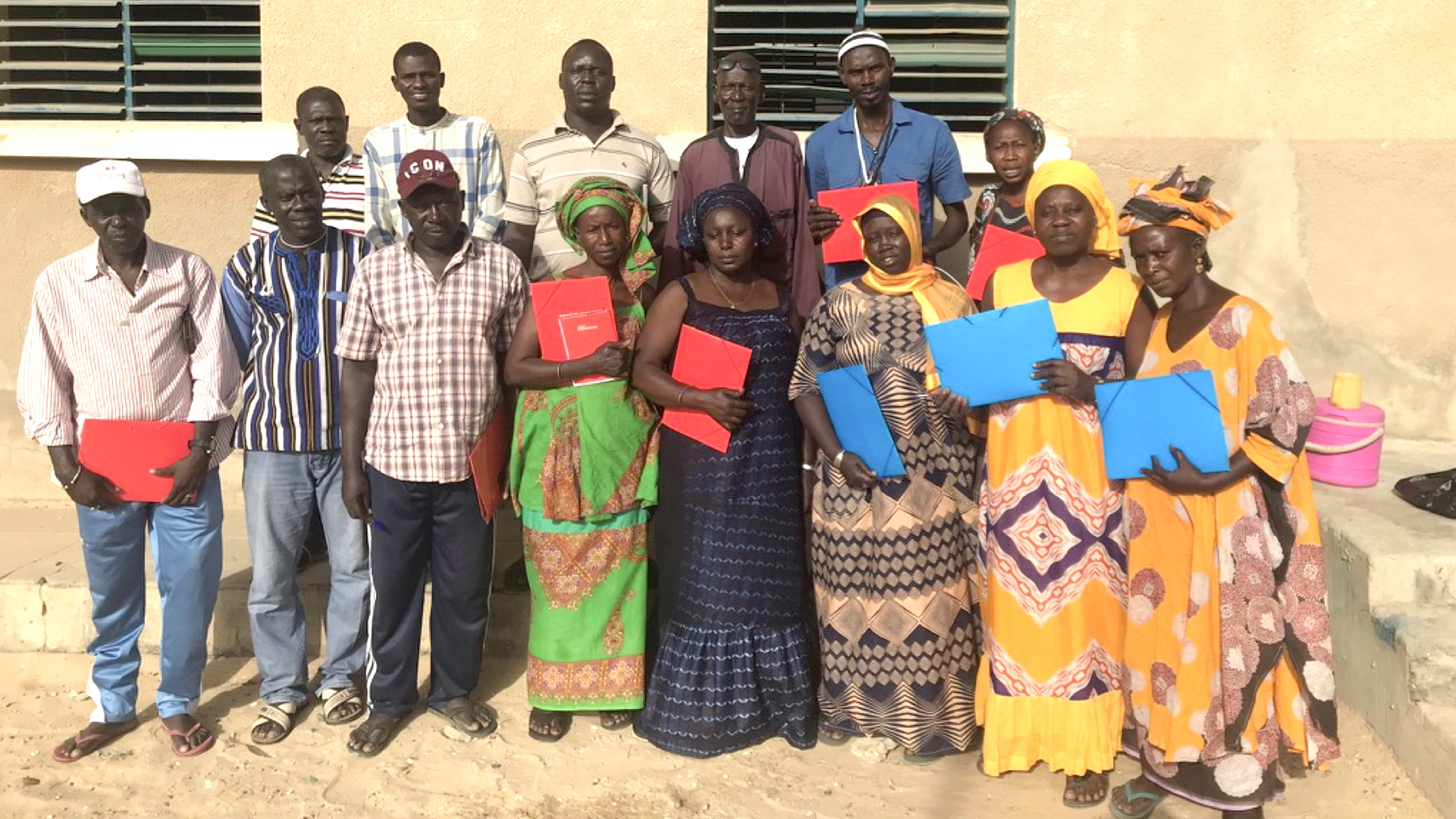Workshops like these are laying the foundation for a strong network of ICCAs–territories of life throughout Senegal and Africa by supporting and strengthening the territories at the local level
First published on 01/22/2023, and last updated on 06/18/2025
By George Smith
Translation from French: Margaret Besser
The emblematic Kawawana territory of life in the Casamance region of Senegal has inspired a growing movement to build a dynamic and resilient national network of ICCAs–territories of life. The movement is deeply rooted in local, community-level action to strengthen ICCAs throughout Senegal and beyond, regardless of whether they are “defined,” “disrupted,” or “desired.”
Territories of life, known in some contexts as ICCAs (TICCA in Spanish; APAC in French), are territories and areas conserved by Indigenous peoples and local communities. They are as diverse as the peoples and communities who shape and sustain them through their unique cultures, governance systems, and practices.
As part of the self-strengthening process (SSP), workshops were held to help communities identify their needs and aspirations for their territories of life. I participated as a doctoral candidate working with the Kawawana territory of life—in May 2022, I was invited to observe and participate in the workshops by Salatou Sambou, the ICCA Consortium’s Regional Coordinator for West Africa, and my host during my stay.
The first two-day workshop was held in the village of Moundé, where we supported a group of community members working to establish an ICCA, which they call Wacc Bassil or “our nourishing mother” in the Serer language. I then traveled down the Sine-Saloum river delta to its estuary and the Bétynti territory of life, along with Salatou, on behalf of the KABEKA Association and representatives of the National Association of ICCAs of Senegal (ANAPAC) and the NGO Natural Justice.
Moundé: A community gaining confidence and unique capacity to conserve its territory of life
Moundé is a small Serer fishing community of roughly two thousand people. The village lies at the heart of a rich estuary and mangrove swamps ecosystem and is home to abundant flora and fauna. Because Moundé cannot be reached by car, the final stage of our journey was a canoe paddle through silken waters just as night was falling.
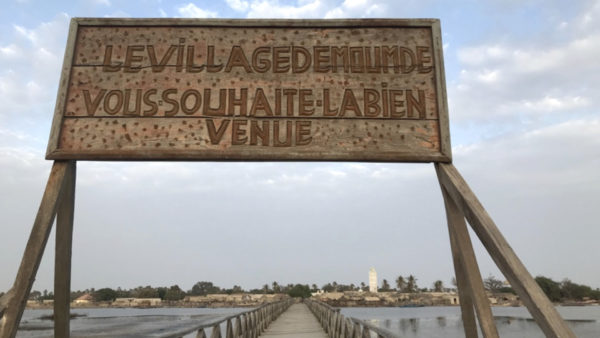
The objectives of our visit to Moundé were to work with the community to achieve the following.
- Deepen their knowledge and understanding of their ICCA, especially its role in a more extensive network spanning Senegal and the world.
- Better appreciate and value their history, culture, and governing institutions.
- Improve their governance and manage their ICCA with integrity and vision.
- Strengthen their ties to other local communities, ICCAs, civil society, and the local government.
- Gain greater appropriate recognition, respect, and support at the local, national, and international levels.
Develop the wisdom, responsibility, and capacities to meet the opportunities and challenges facing their ICCA through lessons learned, innovation, prevention, and problem-solving.
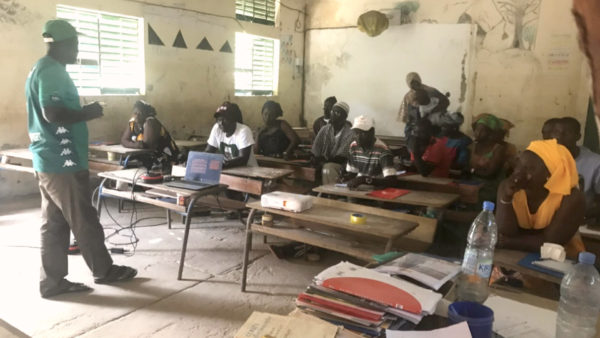
These objectives were drawn from the self-strengthening process, which comprises elements designed to support local communities to reflect critically on their territories of life. The strategy aims to inspire reflection on the historical and cultural importance of ICCAs, to promote a greater understanding of how ICCAs work and the challenges of self-governing, planning, and envisioning a brighter future, and to build connections and support communication among ICCAs and partners.
The elements of the SSP were developed for use all over the world. Still, the framework allows individual communities to apply their ideas, resources, and tools to their local context.
Throughout the workshops in Moundé, the facilitation team encouraged the community to recognize and trust their unique ability to manage and preserve their territory. The analogy of the bow and arrow was presented to reinforce this idea: the more the bow is drawn (the more a community can commit to its territory’s historical and cultural values), the more powerful and accurate the arrow will be to hit its target.
Recognize, document, communicate: Three clear objectives for Moundé
After two days of group work, community members in Moundé came away with clear objectives and plans for Wacc Bassil. They identified three areas of essential work to strengthen their ICCA.
Official status and recognition:To make Wacc Bassil an official organization, workshop participants established a managing committee and held a general assembly to set up formal decision-making processes. Doing so will also further the recognition of Wacc Bassil as an ICCA.
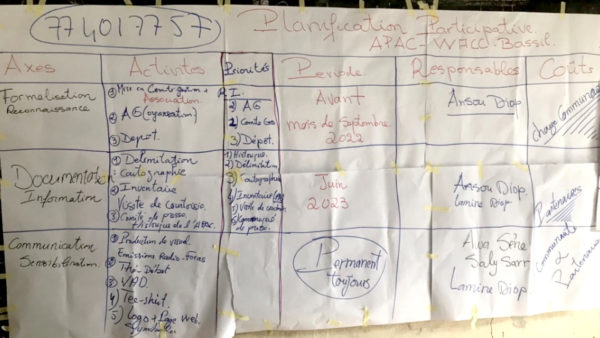
Documentation: Participants decided to create a map of Wacc Bassil and define its official borders so it could be documented as an ICCA. They also decided to write a press release for local and regional media outlets.
Communication and awareness: Participants suggested ways to spread the word about Wacc Bassil to people both within and outside their community: a radio program, a community discussion, a website, and door-to-door visits were all floated as ways of informing people about work being done in the ICCA.
Bétynti: A values-based approach to conserving biodiversity
Like Moundé, Bétynti can only be reached by boat. So, our next stop was the small fishing port of Missirah, where we embarked on a little boat that wound its way through hidden sandbars at ebb tide. We reached our destination at noon, and Salatou launched straight into the workshops. The sessions lasted two days and had the same general objectives as in Moundé. But even though the workshops in Bétynti and Moundé followed the same general format, the conversations in Bétynti were particular to that community and its territory of life.
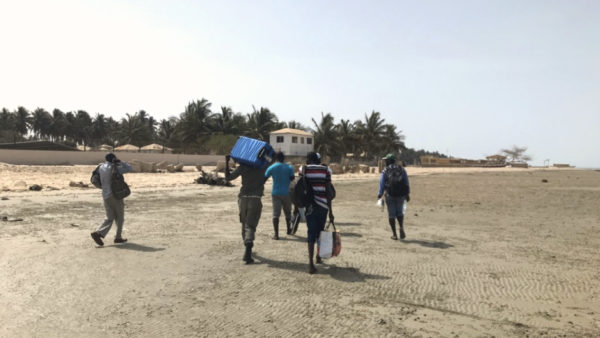
In Bétynti, discussions focused mainly on how the territory of life supports their fundamental values and adds vitality to their community life. Workshop participants put those values into four categories.
Community traditions and customs: Participants described how deep, strong ties to their territory of life inspired them to maintain it, thus strengthening community bonds and preserving essential traditions and rituals, such as customary methods of managing land and protecting biodiversity and the practice of traditional medicine.
The economic importance of territories of life: Participants also stressed the vital importance of their territory of life in contributing to a healthy local economy centered mainly on traditional medicines, fishing, and pasture-grazing livestock.
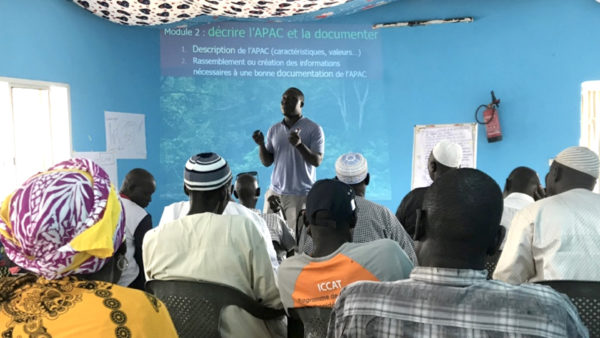
Solidarity and community pride:Last but not least, participants said that the success of their ICCA was a source of pride for the community. Having effective mechanisms in place to resolve conflicts around the use of resources, for example, has led to greater social cohesion and solidarity.
Self-strengthening objectives in Bétynti
In the face of the many threats to their territory of life, mainly social and economic precarity caused by globalization, community members identified the critical needs and objectives of strengthening the territory in the years to come. These included:
- Clearly defining its borders.
- Obtaining equipment for effective monitoring.
- Having a dedicated office for administrative tasks.
- Gaining legal recognition as an ICCA.
- Holding their first general assembly.
- Communicating and sharing with other ICCAs, both locally and throughout Senegal.
The SSP: Promoting conservation by and for communities
By supporting and strengthening territories of life at the local level, workshops like these are laying the foundation for a strong network of ICCAs throughout Senegal and the world. The work also changes how the world thinks about conservation and sustainable development.
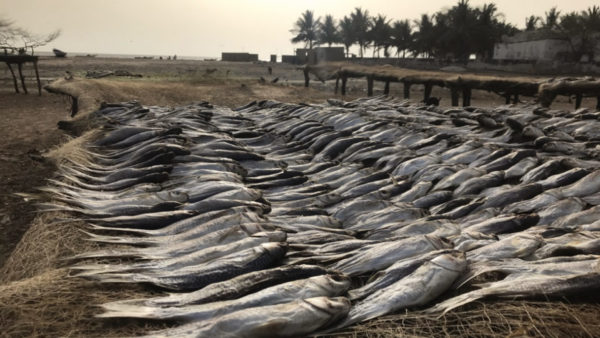
Conservation in ICCAs is designed to meet the needs of local communities and Indigenous Peoples, drawing on their unique histories and cultures. It is conservation by communities, for communities. I learned from watching this work being done in real-time in Moundé and Bétynti that the locally-driven establishment of ICCAs has the power to change the way conservation is understood and practiced on a large scale.
